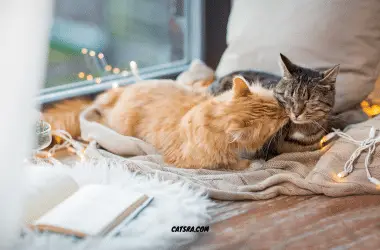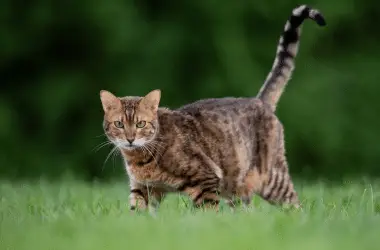Introduction
Why are cats fur so soft? I wonder why it feels so soft. The answer to this captivating mystery lies in the secrets we’re about to unveil in this article.
Cats possess a charm, and their soft fur only adds to their allure. In the following paragraphs, we will unravel the reasons behind their velvety coats. We will explore what contributes to some cats being softer than others and even delve into ways you can enhance your feline friend’s fur.
So if you are curious about what makes your cat’s fur irresistibly smooth, keep reading; you’re in for a journey!
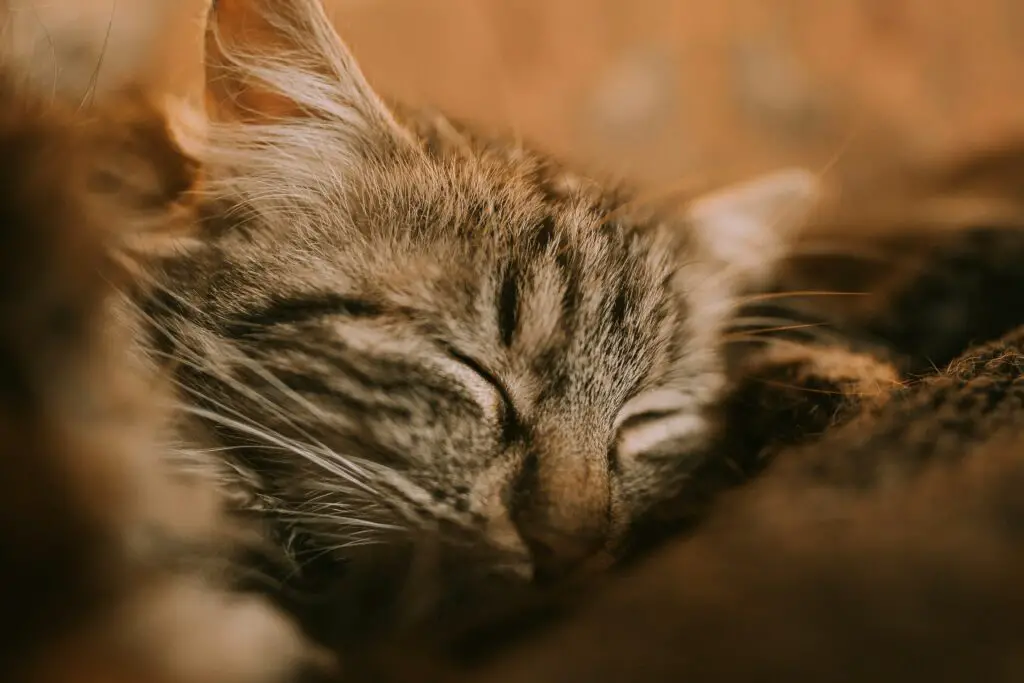
Table of Contents
The Structure Of a Cat’s Fur
Cat fur isn’t simply soft by chance; it is the result of a designed structure that nature has refined over centuries. Understanding this structure is vital in comprehending why cat fur feels so soft and how it serves purposes.
A cat’s fur consists of three layers; the guard hairs, the awn hairs, and the down hairs. Each layer plays a role in creating that sensation we relish when caressing our furry companions.
The longest and most visible hairs are the guard hairs. They play a role in protecting the layers from external elements such as rain or dirt. These hairs have a coarser texture, which’s why they may not feel as soft to the touch.
Under the guard hairs, we have the hairs, which are shorter and finer. These hairs assist in insulation. Act as a shield against temperature changes. They add a layer of softness underneath the coarse guard hairs, contributing to the overall softness of the cat’s fur.
The innermost layer of a cat’s fur consists of hairs, which are very fine and tightly packed. These hairs serve as insulation, keeping the cat warm and cozy. They give the cat’s fur its softness.
Additionally, the microscopic structure of a cat’s fur is designed to minimize friction, allowing your hand to glide smoothly over it. This is why petting a cat feels so pleasant.
The Importance of Grooming
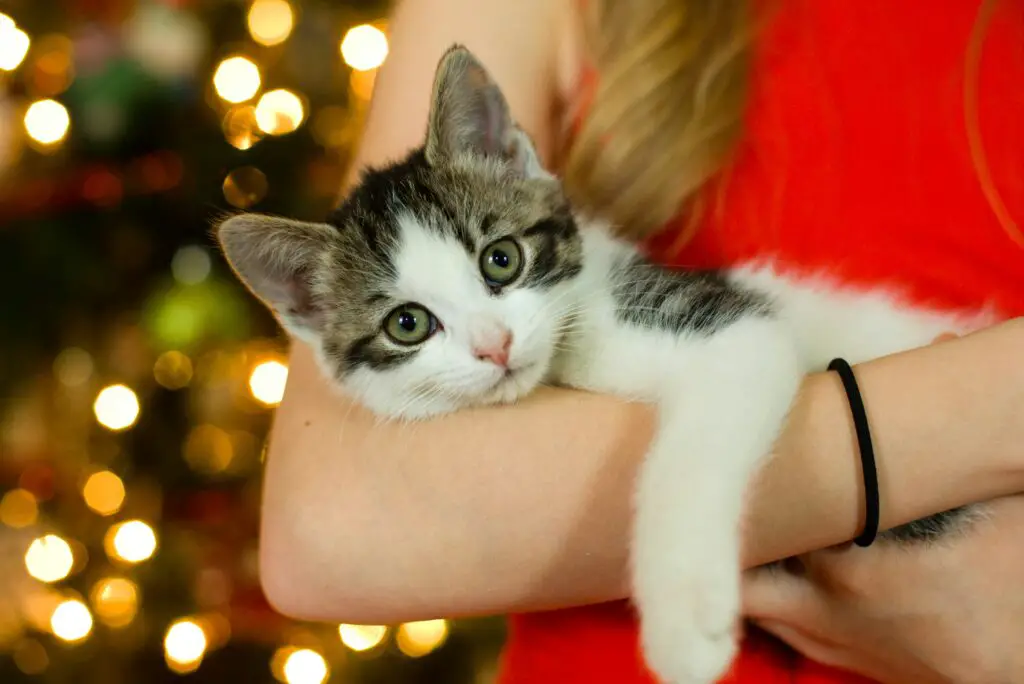
Grooming is essential for maintaining the softness and overall health of a cat’s fur. Cats are naturally self groomers. They may sometimes require assistance from their human companions.
Cats groom themselves by licking their fur with their tongues that resemble sandpaper. This not only helps them stay clean but also spreads oils produced by their skin throughout their fur. These oils act as conditioners, keeping the fur soft and supple.
However, there are instances where cats may struggle with grooming. Older cats or those with health conditions may find it difficult to reach all parts of their bodies. In cases, regular brushing by humans can be highly beneficial. Regularly brushing your pet’s coat serves a purpose. It helps to eliminate hair and prevent tangles while also promoting the production of natural oils.
It’s important to note that cats find grooming to be quite soothing. They see it as a way to relax and alleviate stress. So when you spend quality time brushing your cat, their fur will not become softer. They will also become happier and more relaxed.
Moreover, grooming sessions are helpful in identifying any signs of issues such as fleas, ticks, or skin irritations. When you run your hands through your cat’s fur during grooming, you may come across any problems that require attention.
Diet and Nutrition
Believe it or not, what your cat consumes directly affects the softness of their fur. Providing them with nutrition is vital for maintaining a coat that feels soft and pleasant.
A crucial element in a cat’s diet is high quality protein. It plays a role in the production of keratin, which’s an essential component of their fur. When cats receive an amount of protein in their diet, their fur tends to be thick, soft, and lustrous. Make sure to check the ingredient list on your cat’s food to ensure it contains protein from sources like chicken, fish, etc.
Apart from protein intake, omega 3 fatty acids also contribute to achieving shiny fur.
These types of fatty acids are present in fish oil or in foods that aim to improve the condition of your pet’s coat. They have inflammatory properties and contribute to maintaining well hydrated skin and fur, resulting in a noticeably smoother and softer texture.
It is crucial to ensure that your cat receives a balanced diet that fulfills its nutritional requirements. Seeking guidance from a veterinarian can assist you in selecting the cat food. If necessary, supplement. It’s important to consider factors such as age, activity level, and any existing health conditions, as they can influence your cat’s needs.
Interesting Topic: can cats eat canned crab meat?
Environmental Factors
The environment in which your cat lives and thrives greatly affects the softness of its fur. Cats are creatures. Their surroundings play a vital role in maintaining a healthy and velvety coat.
Temperature and humidity levels are factors to consider. Cats thrive in climates with high temperatures. Extreme temperatures, whether hot or cold, can cause stress on their bodies. Impact the texture of their fur. Cold weather may result in damaged skin and soft fur, while excessive heat can make them more susceptible to overheating.
Keeping your cat indoors helps regulate exposure to weather conditions. If your cat spends time outdoors, providing shelter is important, along with ensuring they have a cozy place to retreat during the summer.
Additionally, it’s worth noting that stress and anxiety can also affect the texture of a cat’s fur.
Cats tend to follow a routine. When there are changes in their surroundings or daily habits, it can cause them stress. This stress can sometimes be seen in their fur with behaviors like licking or biting that can result in damaged fur and less softness.
To ensure that your cat has a cat friendly environment that promotes fur, it’s essential to provide them with clean and fresh water, a comfortable resting place, and ample mental and physical stimulation. Additionally, reducing stressors by introducing changes or offering hiding spots can also contribute to maintaining the softness of their fur.
The Role of Genetics
Genetics plays a role in determining the softness of your cat’s fur. The genes inherited from their parents dictate aspects of their appearance, including the texture of their coat. Certain cat breeds are known for having soft fur due to specific genetic traits. For instance, breeds like Ragdolls and Birmans are renowned for their coats.
However, within the breed, individual cats may have variations in fur texture influenced by their genetic inheritance. It’s an interplay of genes that governs factors like the length, density, and texture of a cat’s fur.
While genetics lay the foundation for your cat’s fur quality, it’s important to remember that environmental factors and proper care also play a role in how soft their coat feels. The genetics of an individual establish the foundation. The way they are taken care of and their environment can influence whether their fur is soft or not.
If you’ve ever wondered why your cat has fur, it’s all thanks to their genes as a starting point. However, you can also contribute to maintaining their softness by taking care of their grooming, providing nutrition, and ensuring they have a comfortable environment. It’s important to note that even if your cat isn’t from a breed known for having fur, you can still help them achieve a velvety coat through care.
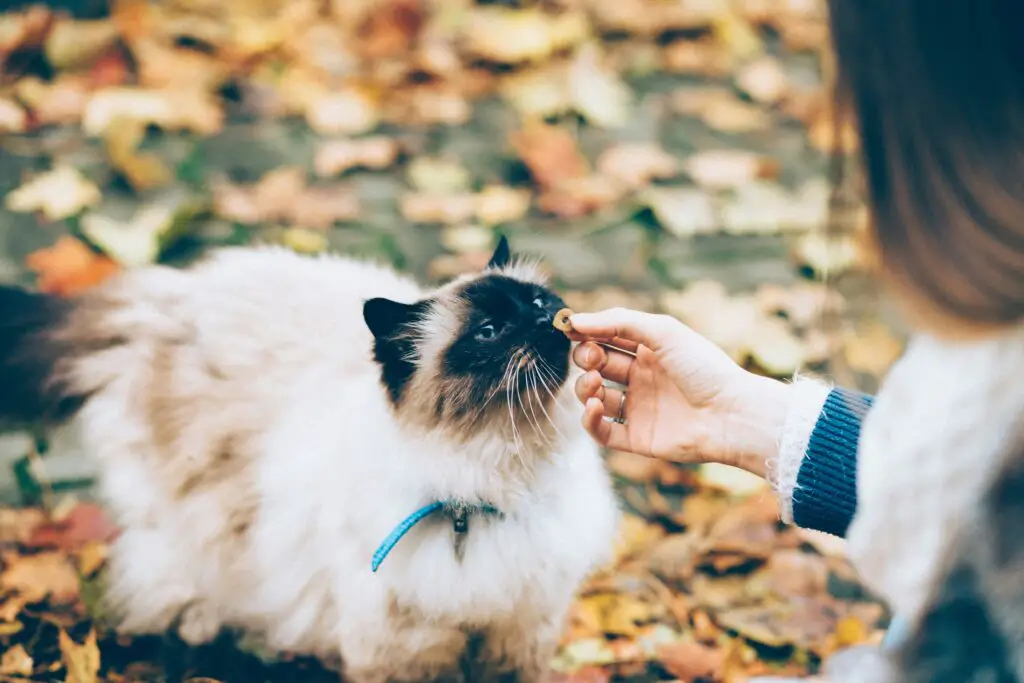
Medical Conditions Affecting Fur Softness
Factors affecting the softness of your cat’s fur can sometimes indicate their health. Several medical conditions can impact the texture of their coat. One common condition is skin allergies. Cats can develop allergies to factors like pollen, dust mites, or certain foods. When allergies occur, they may experience itching, excessive scratching, and even hair loss. These symptoms can make the fur feel less soft and more pleasant to touch.
Another factor worth considering is infestations and fleas. Fleas cause itching and discomfort for cats. In response to this, cats may. Bite at their fur, which could lead to rough patches and a less soft coat over time. It’s crucial to protect your cat against fleas and promptly address any infestations in order to maintain the softness of their fur.
Skin infections, fungal conditions, or hormonal imbalances can also impact the condition of your cat’s fur. These problems can lead to hair loss or alterations in the texture of their fur, resulting in it being less smooth and attractive.
Regular visits to the veterinarian can help identify and address any health issues that may be impacting your cat’s fur. Your vet can recommend treatments. Offer guidance on managing these concerns.
Tips for Achieving Extra Soft Fur
Keeping your cat’s fur soft requires a combination of factors and a little extra care. Here are some practical tips to ensure that your feline companions fur feels irresistibly silky;
Proper Grooming;
Regularly brush your cat to remove fur, prevent matting, and stimulate the production of oils that condition the fur. Choose a brush for your cat’s coat type and turn grooming sessions into bonding experiences.
Quality Diet;
Ensure that your cat’s diet is rich in high quality protein and essential fatty acids like omega 3. A balanced diet contributes to skin and a soft, shiny coat.
Hydration;
Make sure your cat has access to fresh water. Hydrated skin is less prone to dryness, which can affect the softness of their fur.
Healthy Environment:
Create a stress comfortable living space for your cat. Minimize temperature extremes and provide resting spots. Reduce sources of stress to keep their fur in top notch condition.
Regular Vet Visits:
Make sure to schedule visits to the vet for your cat. These check ups are important to address any issues that could affect your cat’s fur quality.
Supplements:
If you think your cat’s diet might be lacking nutrients for fur, it’s a good idea to consult your veterinarian about supplements like omega 3 fatty acids. They can provide guidance on what would be most beneficial for your cat’s fur health.
Avoid Over-bathing:
It’s important to be mindful of not bathing your cat. Overdoing it can remove the oils from their fur. Only give them a bath when necessary. Make sure to use shampoos specifically made for cats.
Stress Management:
To help your cat handle stress, engage them in playtime with toys. Maintain a consistent routine. Stress can sometimes affect the texture of their fur.
Comfortable Bedding:
Make sure your cat has a comfortable bed. This will prevent any friction that could impact the softness of their fur.
Love and Attention:
Spend quality time with your cat, showing them love and giving them attention. A happy and content cat is more likely to have maintained its fur.
By following these suggestions, you’ll be able to keep your cat’s fur soft, providing both you and your feline companion with the pleasure of a velvety coat.
Conclusion
In conclusion, why are cats fur so soft? There are factors that contribute to the softness of a cat’s fur, including genetics, grooming habits, and the unique structure of their coat. Understanding these factors allows us to better understand and maintain the softness of our feline companions fur. Not only does their fur provide warmth and protection, but it also adds to their overall charm and appeal. So the next time you stroke your cat, take a moment to appreciate the silky texture of their fur and all the reasons why it feels so irresistibly soft.
FAQs: Why Are Cats Fur So Soft?
1. Should I worry if my cat’s fur isn’t soft?
Well, it’s not always the case. Although having fur is desirable, there are things that can affect the texture of a cat’s fur, such as genetics and overall health. If you happen to notice any significant changes in your cat’s fur texture, it would be an idea to consult with your veterinarian to rule out any potential underlying health issues.
2. Why are cats so cuddly?
Cats are natural creatures. Cuddling not only helps them form bonds with their owners but also keeps them warm and gives them a sense of security. Soft fur just adds a touch of coziness, making snuggling with them more delightful.
3. What are the softest cat breeds?
Certain cat breeds, such as the Ragdoll Birman, Maine Coon, and British Longhair, are well known for having fur. However, it’s important to note that the texture of a cat’s fur can still vary within a breed.
4. Are fluffy cats rare?
Fluffy cats with voluminous fur are not necessarily uncommon. Their appearance can differ. Breeds like the Persian or Siberian are often associated with fluffiness, although it ultimately depends on each cat’s makeup.
5. Can cats make themselves softer?
Yes, cats contribute to the softness of their fur through self grooming. When they lick themselves, they spread oils over their fur, which act as a sort of conditioner. However, some cats might require assistance with grooming if they have limited mobility or health issues.
